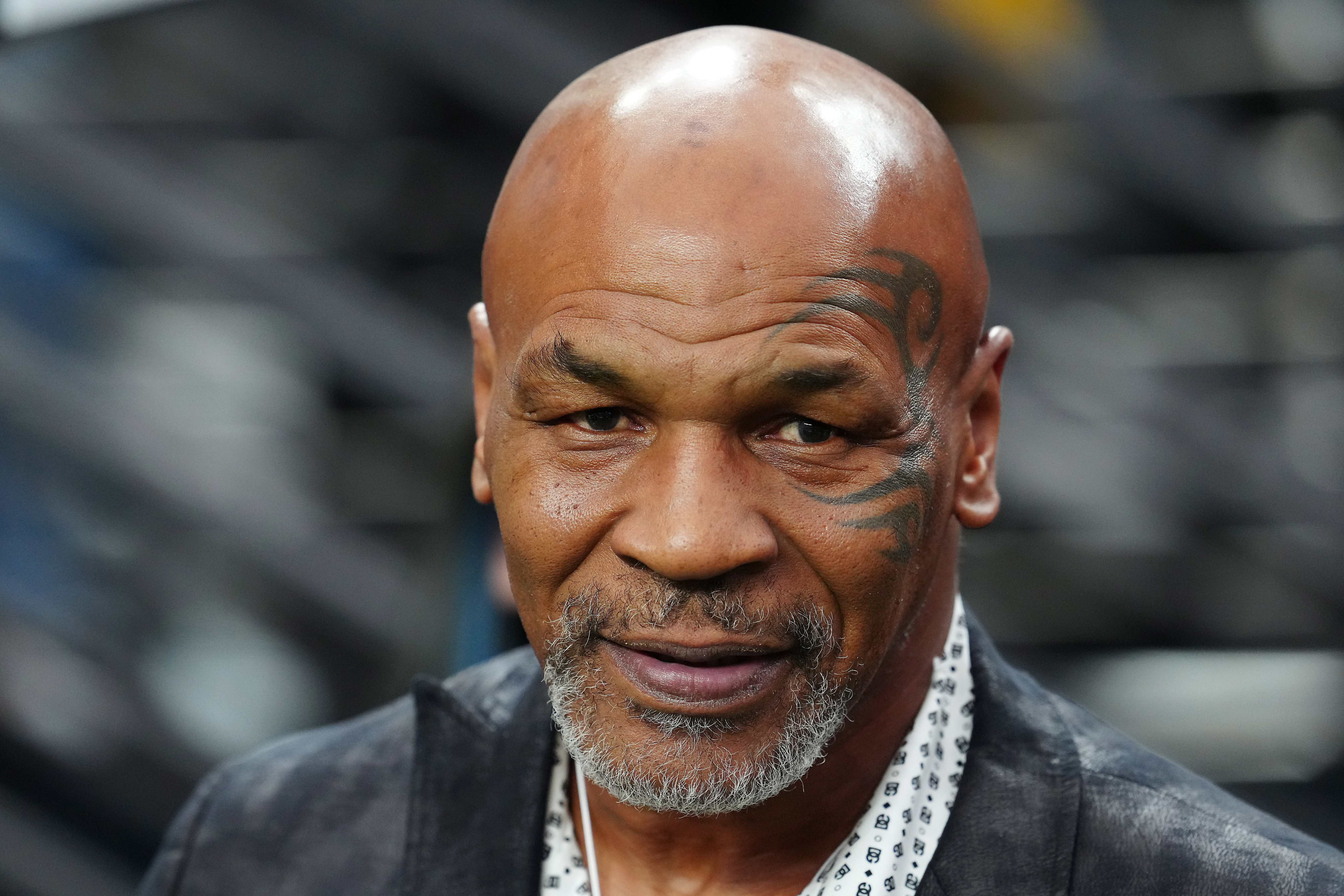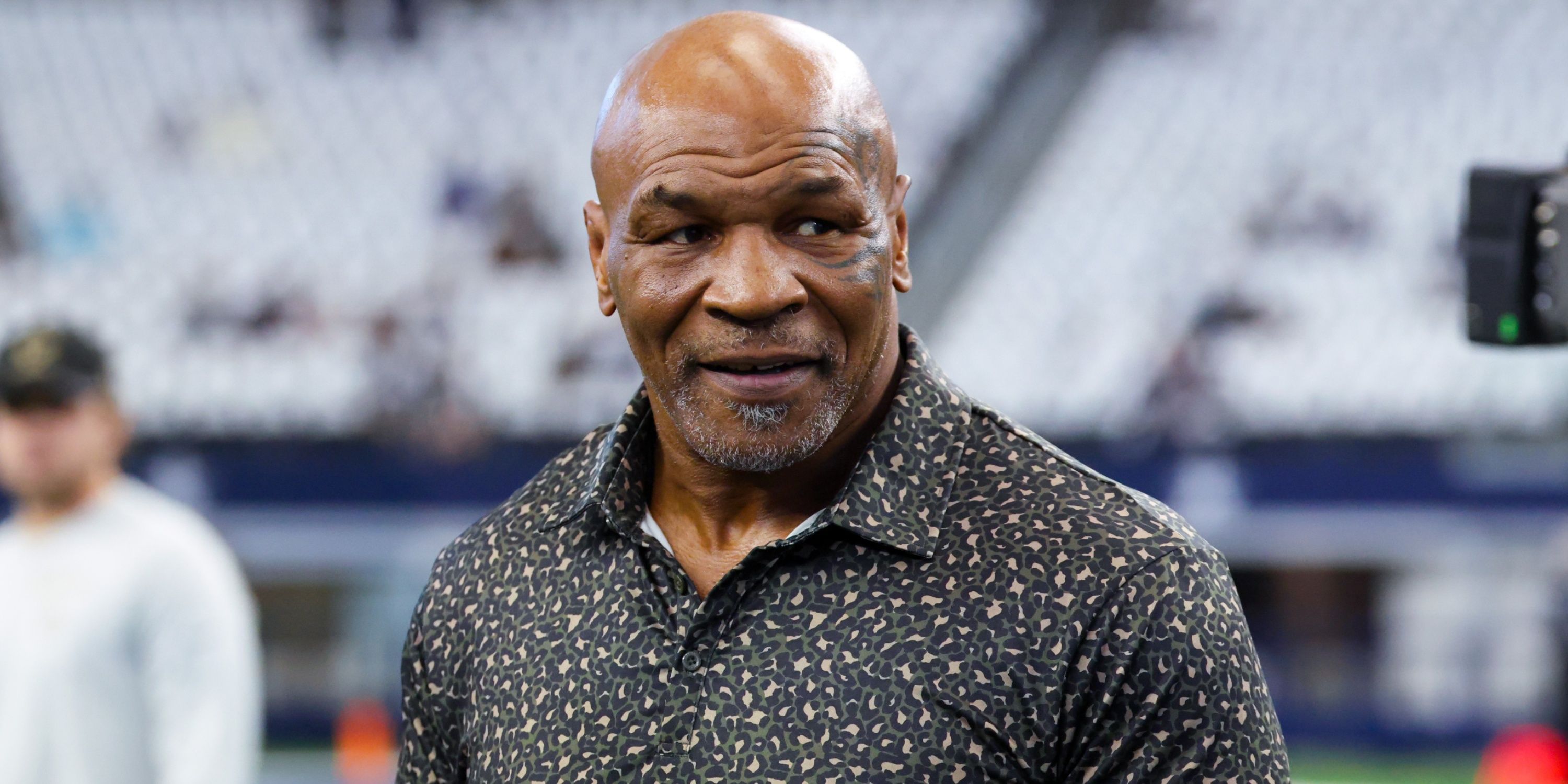Many people are quite curious about figures like Mike Fisher's net worth in 2024 and how he built his fortune. It's a very common question, really, when we think about successful public personalities. However, it's worth noting, as a matter of fact, that the information we have at hand, our specific text, doesn't actually detail the financial standing or career of a "Mike Fisher." Instead, it gives us a rather fascinating glimpse into the lives and careers of other prominent individuals named Mike: the legendary boxer Mike Tyson, the intriguing television miniseries "Mike" about his life, and the rising rapper known as Mike (Michael Jordan Bonema). So, this article will explore how fortunes are typically amassed in the worlds these "Mikes" inhabit, drawing directly from the details provided in our source material.
We'll be looking closely at the paths to wealth for these figures, focusing on the careers and ventures mentioned in our text. Mike Tyson, for example, is a name synonymous with boxing greatness, and his journey, too, is a powerful example of how athletic prowess can translate into significant earnings. His story, as our text suggests, is wild, tragic, and controversial, which often means a dynamic financial picture over time.
Then there's the television series "Mike," which itself represents a considerable investment and a potential source of income for its creators and stars. And finally, we'll touch on Mike, the American rapper, songwriter, and record producer. His profession, in a way, offers a different, yet equally compelling, blueprint for building a fortune in the modern entertainment industry. It's quite interesting to see the different avenues these individuals have taken.
Table of Contents
- Mike Tyson: A Look at a Boxing Legend's Financial Journey
- The TV Series 'Mike': Exploring a Controversial Narrative and Its Economic Impact
- Mike (Michael Jordan Bonema): The Rapper's Path to Prosperity
- General Principles of Fortune Building in Entertainment and Sports
- Frequently Asked Questions
Mike Tyson: A Look at a Boxing Legend's Financial Journey
When we talk about wealth in sports, Mike Tyson is, you know, one of the first names that often comes to mind. Our text tells us he is an American former professional boxer who competed for a very long stretch, between 1985 and 2024. That kind of sustained career at the top levels of boxing, as a heavyweight champion no less, typically brings in a lot of money from fight purses, pay-per-view shares, and endorsements. He was, after all, nicknamed "Iron Mike" and "Kid Dynamite," which speaks to his drawing power, a key element in financial success.
Early Career and Dominance
In his prime, Mike Tyson was, quite simply, one of the most dominant athletes in the world. Being a heavyweight boxing champion means you're at the very top of a sport that generates massive revenue. Prize money for championship bouts can be incredibly high, and when you add in the share from pay-per-view sales, a top boxer's earnings can soar. Early in his career, he was virtually unstoppable, which, you know, made him a huge draw for fans and, naturally, for advertisers and promoters. This initial period of dominance really laid the groundwork for significant financial gains, allowing him to accumulate considerable wealth very quickly.
The sheer excitement he brought to the ring, that's what made people want to watch, and that's where the money came from. Promoters would pay huge sums to have him fight, and television networks would pay even more for the rights to broadcast his matches. This was, in some respects, a golden era for boxing, and Tyson was at its very center. So, his early dominance was not just about winning titles; it was also about creating a massive economic engine around his fights, which, you know, is pretty common for top-tier athletes.
Challenges and Public Life
Our text mentions that Mike Tyson has had a "wild, tragic, and controversial life and career," and that he has been "convicted of rape and drug charges." These aspects of his public life, naturally, had a profound impact on his financial journey. Controversies, while sometimes boosting short-term notoriety, can often lead to lost endorsement deals, legal fees, and periods away from the sport, all of which affect net worth. It's a rather complex picture, as you can imagine, balancing immense earnings with significant personal and legal hurdles.
Despite these challenges, or perhaps in some ways because of them, his story remained compelling to the public. This continued interest, even during difficult times, sometimes allowed for comebacks or new ventures. The public's fascination with his life, the highs and the lows, has, you know, arguably kept him in the public eye, which can be a double-edged sword for finances. It's just a little bit of a reminder that wealth building isn't always a straight line, especially for someone with such a high profile.
Beyond the Ring: Other Ventures and Earnings
Our text hints that people can "Read about his boxing career, record, age, movies, and more." The mention of "movies" suggests that Tyson has branched out into acting or other forms of entertainment, which is a common strategy for athletes to extend their earning potential beyond their playing careers. Many athletes, too, invest in businesses, appear in commercials, or launch their own brands, leveraging their fame. These activities can provide steady income long after their competitive days are over, building on the foundation of their athletic fortune.
His continued presence in popular culture, whether through documentaries, cameos, or even public speaking engagements, demonstrates a capacity to generate income from his personal brand. This kind of post-career diversification is, you know, pretty typical for someone who achieved such a high level of fame. It's about turning recognition into lasting financial opportunities, which, as a matter of fact, can be quite lucrative. So, his fortune isn't just about the fights; it's also about what he's done since.
Personal Details and Bio Data of Mike Tyson
| Full Name | Michael Gerard Tyson |
| Born | June 30, 1966 |
| Nationality | American |
| Profession | Former Professional Boxer |
| Boxing Career | 1985 – 2024 |
| Nicknames | Iron Mike, Kid Dynamite |
| Notable Mentions in Text | Heavyweight Boxing Champion, Convicted of Rape and Drug Charges, Movies |
The TV Series 'Mike': Exploring a Controversial Narrative and Its Economic Impact
The television miniseries "Mike," an unauthorized look at Mike Tyson's life, represents another interesting aspect of wealth generation, not just for Tyson himself (indirectly, through renewed public interest), but for the creators and production teams involved. Our text tells us it was created by Steven Rogers and comes from the team behind "I, Tonya," and showrunner Karin Gist. These are established professionals in Hollywood, and their work on a series like this, you know, certainly comes with significant financial rewards.
Genesis of the Series
The idea for a series like "Mike" starts with a compelling story, and Mike Tyson's life, as our text puts it, is certainly "wild, tragic, and controversial." This kind of narrative potential is what attracts creators like Steven Rogers and the team known for "I, Tonya." Developing a series from concept to screen involves securing funding, writing scripts, and assembling a cast and crew. For the creators, their initial compensation comes from development deals and screenwriting fees. This is where, you know, the first seeds of financial gain are sown for the creative talent.
The fact that it's an "unauthorized look" adds a layer of intrigue, which can, in a way, boost public interest and, consequently, viewership. This element of controversy, too, can sometimes translate into more buzz and, therefore, more potential revenue for the production. It's a very strategic move to pick a subject that already has a built-in audience and a compelling, if complex, story to tell. That, in fact, is often a key to success in the entertainment business.
Production and Distribution
Our text mentions that "Mike, an original series, streaming August 25 on #DisneyPlus" and also notes it's a "sports biopic series from Hulu." Being picked up by major streaming platforms like Disney+ and Hulu is a huge financial win for the production company and its investors. Streaming services pay substantial licensing fees or directly fund productions to secure exclusive content, which then helps them attract and retain subscribers. This arrangement means steady income for the studios, producers, and often, residual payments for the actors and writers.
The involvement of Trevante Rhodes as the title role, along with other actors like Russell Hornsby, Olunike Adeliyi, and Kale Browne, means significant salaries for these performers. For a showrunner like Karin Gist, an executive producer, there are usually substantial fees and sometimes even a share of the show's overall success. So, the distribution model, you know, plays a very important part in how the fortune is spread among all the people involved in making the series.
The Business of Biopics
Biographical dramas, or biopics, are a popular genre in Hollywood because they often come with a pre-existing fan base and a compelling narrative that, you know, doesn't need to be invented from scratch. Our text highlights "Mike" as exploring "the dynamic and controversial story of Mike Tyson," which is precisely what makes biopics attractive to studios. They offer a relatively safe bet for viewership, which, in turn, makes them a more appealing investment.
The financial success of a biopic isn't just about its initial streaming numbers; it also involves critical reception, which our text points to with "Discover reviews, ratings, and trailers for Mike on Rotten Tomatoes." Good reviews and ratings can lead to awards, further public interest, and even international distribution deals, all of which contribute to the overall profitability and, naturally, the fortunes of those involved. It's, like, a whole ecosystem of financial opportunities.
Mike (Michael Jordan Bonema): The Rapper's Path to Prosperity
Beyond the boxing ring and the television screen, our text introduces us to another Mike: Michael Jordan Bonema, known professionally as Mike (stylized in all caps). Born October 13, 1998, he is described as an "American rapper, songwriter and record producer based in New York City." This profession, too, offers a distinct, yet powerful, avenue for building a fortune in the modern music industry. It's a very different landscape from professional sports, but the principles of leveraging talent and building a brand are similar.
Who is Mike the Rapper?
Mike, or Michael Jordan Bonema, represents the new generation of artists building their careers in the digital age. Being a rapper, songwriter, and record producer means he has multiple streams of potential income within the music ecosystem. As a songwriter, he earns royalties when his songs are performed or streamed. As a record producer, he earns fees for his work with other artists and potentially a share of the sales from the tracks he produces. And, of course, as a rapper, his own performances and music releases are primary sources of income. He's, you know, got a lot of irons in the fire.
Being "based in New York City" also suggests access to a vibrant and competitive music scene, which can provide opportunities for collaboration, networking, and performance venues. This kind of environment is, you know, pretty important for a developing artist. It allows for constant growth and exposure, which are crucial for building a sustainable career and, eventually, a fortune in music. It's actually a very dynamic field to be in.
Building a Music Fortune
For a rapper, songwriter, and producer, fortune is built through a combination of avenues. Streaming royalties from platforms like Spotify and Apple Music, while individually small, can add up significantly with millions of plays. Album sales, both physical and digital, still contribute, especially for dedicated fans. Touring and live performances are, you know, often the biggest income generators for musicians, allowing them to connect directly with their audience and sell merchandise. This is where a lot of the real money is made, frankly.
Beyond direct music sales and performances, artists like Mike can also earn from brand endorsements, sync licensing (where their music is used in films, TV shows, or commercials), and even publishing deals for their songwriting catalog. As a producer, he might also run his own label or production company, creating additional revenue streams. So, it's not just about rapping; it's about, like, building a whole business around his creative output. That, in fact, is how many artists today manage to build substantial wealth.
Personal Details and Bio Data of Mike (Michael Jordan Bonema)
| Full Name | Michael Jordan Bonema |
| Born | October 13, 1998 |
| Known As | Mike (stylized in all caps) |
| Profession | American Rapper, Songwriter, Record Producer |
| Based In | New York City |
General Principles of Fortune Building in Entertainment and Sports
Looking at the Mikes discussed in our text, whether it's the boxing legend Mike Tyson, the creators of the "Mike" TV series, or the rapper Mike, we can see some common threads about how fortunes are built in the high-stakes worlds of entertainment and sports. It's, you know, rarely a single source of income, and it often involves a combination of talent, strategic decisions, and, frankly, a bit of luck. These industries are very dynamic, and financial success often hinges on adapting to change and seizing opportunities.
Diverse Income Streams
One of the most important principles for building and maintaining wealth in these fields is, like, having diverse income streams. For Mike Tyson, it wasn't just fight purses; it extended to endorsements, appearances, and later, roles in movies and other ventures. For the creators of the "Mike" series, their income comes from various aspects of production, writing, and executive roles. And for Mike the rapper, it's a mix of streaming, sales, touring, songwriting, and producing. Relying on just one source, you know, can be very risky, so diversification is key.



Detail Author:
- Name : Clemmie Hansen
- Username : elisha.boyer
- Email : robyn92@hotmail.com
- Birthdate : 1989-04-08
- Address : 525 Jamir Valleys New Allie, MA 05946
- Phone : (920) 806-9044
- Company : Hills LLC
- Job : Drywall Installer
- Bio : Placeat quis repudiandae eveniet aperiam laboriosam. Odio corrupti temporibus omnis velit magnam temporibus optio veniam. Recusandae et laborum cupiditate ea.
Socials
facebook:
- url : https://facebook.com/bradtkem
- username : bradtkem
- bio : Quis suscipit tempora fugit a magni aut et.
- followers : 4169
- following : 2833
tiktok:
- url : https://tiktok.com/@bradtke1975
- username : bradtke1975
- bio : Ea enim dolor quos laborum ad impedit. Ut maiores expedita qui dolorem.
- followers : 5051
- following : 1804
linkedin:
- url : https://linkedin.com/in/martin_bradtke
- username : martin_bradtke
- bio : Quisquam accusamus rerum aut sed dolorem.
- followers : 4747
- following : 78